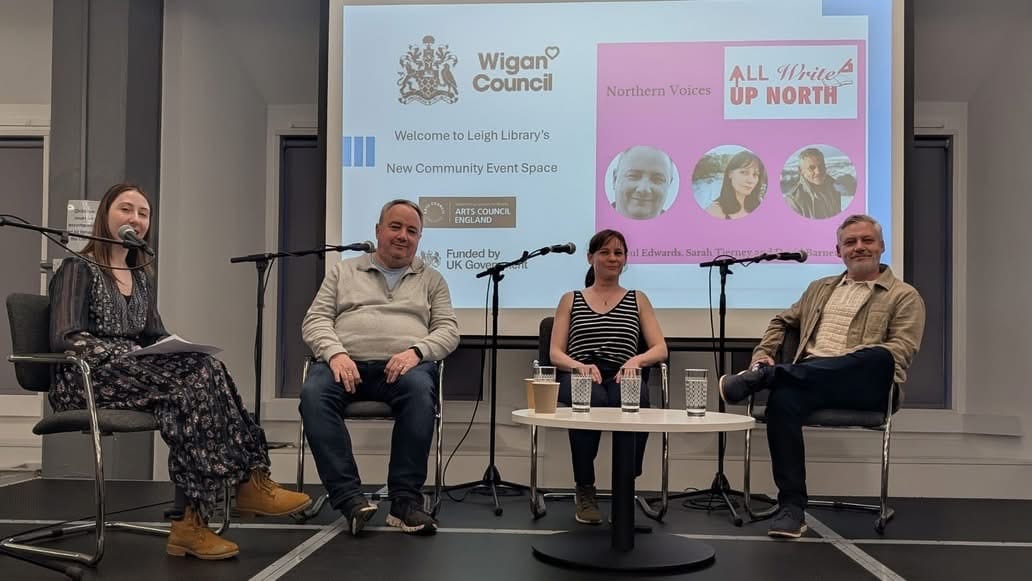A quiet revolution is stirring in the North. At Leigh Library, a group of writers gathered not just to read or reflect—but to challenge a system that continues to overlook them.
“All Write-Up North,” hosted by Comma Press and Wigan Council, brought together authors Paul Edwards, Sarah Tierney and David Barnett to spotlight the stark regional inequalities in UK publishing. Their message was clear: the industry’s centre of gravity must shift away from London if it wants to stay relevant—and fair.
In an open letter, the University of Exeter urged publishers to create “equal opportunities” and better access for working-class writers—calling time on an exclusionary, London-dominated system that’s remained largely unchanged for over a century.
The Publishing Association’s survey of over 6,000 professionals laid the disparity bare: 15% were based in London, compared to just 4% in the Northwest.
Touching on this, David Barnett, a writer and journalist whose work has appeared in The Times and The Observer, noted that "everyone who works in publishing lives in London; it's the connections people make in the bar or the pub." Similarly, Sarah Tierney, a Northern writer, and Journalist in Manchester agreed that there are far more opportunities to meet the "right people" in London, and that "not making the right contacts can affect a career."
This isn’t just about stats. It’s about what it means to write from the North—and be heard. “It’s not that the North changed me,” said Barnett. “But I incorporate the North because it’s in my blood.” For Paul Edwards, whose debut sci-fi novel Triton was published by Northodox Press, the region is a “hotbed of creativity,” where storytelling has always been part of everyday life.
The Northern Fiction Alliance echoes the statements made by the writers on the panel and the wider industry, noting that there is a "wider invitation" to set up "outside of London." Though there are many business initiatives that can be applied to reshape and define the literary landscape, there is still disagreement that the centralised "old monoculture" needs to adapt and change. In its eight-stage plan, The Alliance proposed changes aimed at improving the publishing industry in the North and increasing the representation of Northern voices.




